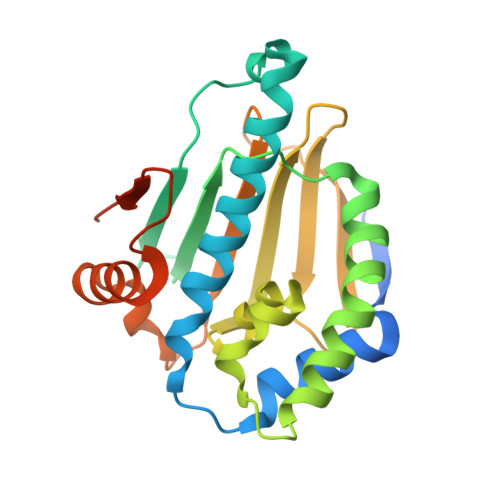Structure-Activity Relationships in Purine-Based Inhibitor Binding to Hsp90 Isoforms
Wright, L., Barril, X., Dymock, B., Sheridan, L., Surgenor, A., Beswick, M., Drysdale, M., Collier, A., Massey, A., Davies, N., Fink, A., Fromont, C., Aherne, W., Boxall, K., Sharp, S., Workman, P., Hubbard, R.E.(2004) Chem Biol 11: 775
- PubMed: 15217611
- DOI: https://doi.org/10.1016/j.chembiol.2004.03.033
- Primary Citation of Related Structures:
1UY6, 1UY7, 1UY8, 1UY9, 1UYC, 1UYD, 1UYE, 1UYF, 1UYG, 1UYH, 1UYI, 1UYK, 1UYL, 1UYM - PubMed Abstract:
Inhibition of the ATPase activity of the chaperone protein HSP90 is a potential strategy for treatment of cancers. We have determined structures of the HSP90alpha N-terminal domain complexed with the purine-based inhibitor, PU3, and analogs with enhanced potency both in enzyme and cell-based assays. The compounds induce upregulation of HSP70 and downregulation of the known HSP90 client proteins Raf-1, CDK4, and ErbB2, confirming that the molecules inhibit cell growth by a mechanism dependent on HSP90 inhibition. We have also determined the first structure of the N-terminal domain of HSP90beta, complexed with PU3. The structures allow a detailed rationale to be developed for the observed affinity of the PU3 class of compounds for HSP90 and also provide a structural framework for design of compounds with improved binding affinity and drug-like properties.
- Vernalis (R&D) Ltd., Granta Park, Abington, Cambridge CB1 6GB, UK.
Organizational Affiliation:

















